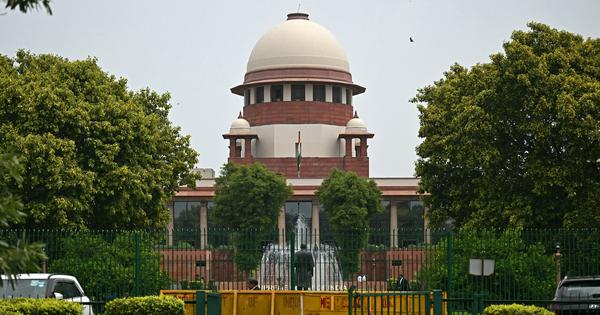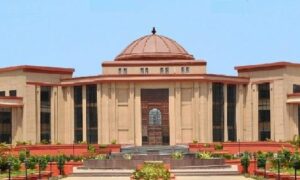
The Madhya Pradesh government has told the Supreme Court that backward communities together comprise more than 85% of the population in the state yet remain severely disadvantaged despite their overwhelming demographic presence, Live Law reported on Thursday.
In its affidavit filed on September 23, the state government relied on the 2011 Census to defend its decision to raise reservations for the Other Backward Classes to 27% from 14% in 2019.
As per the Census, Scheduled Castes constituted 15.6% of the population in the state, Scheduled Tribes 21.1% and OBCs more than 51%.
The affidavit was filed in response to petitions challenging the validity of Section 4 of the 1994 Madhya Pradesh Lok Seva Reservation for Scheduled Castes, Scheduled Tribes and Other Backward Classes Act, which was amended in 2019, according to Live Law.
With the amendment, the Scheduled Castes had 16% reservations in Madhya Pradesh, Scheduled Tribes 20% and OBCs 27%, Live Law reported. In addition, Economically Weaker Sections had a 10% quota, taking the total reservations in the state above the 70% mark.
This exceeded the 50% limit on caste-based reservations set by the Supreme Court in 1992.
In 2022, the Madhya Pradesh High Court issued an interim order staying the 2019 amendment. This restrained the state government from providing OBC reservation beyond 14%, Live Law reported.
The petitions were transferred to the Supreme Court in 2024, which listed the matter for final hearing in October.
In its affidavit in the Supreme Court on September 23, the Madhya Pradesh government referred to a 2022 report of the OBC commission. The report substantiated that the group comprised more than half of the state’s population.
Despite this, the OBCs were restricted to 14% reservation, the state government said. This was “wholly disproportionate” to their demographic share, and their social and educational backwardness, it added.
The affidavit said that the 27% quota was not only justified but also a “constitutionally mandated corrective step”, Live Law reported.
The state government noted that the Supreme Court’s 1992 verdict allowed exceeding the 50% ceiling in “extraordinary circumstances”. This included overwhelming backwardness and regional imbalances.
“The case of Madhya Pradesh falls squarely within these exceptional situations,” Live Law quoted the affidavit as having contented.
The state government, citing several data sets, told the Supreme Court that OBCs in Madhya Pradesh continued to suffer from “entrenched and multi-dimensional backwardness”, which has impaired their ability to compete with privileged groups.
This had led to systemic exclusion, discrimination and deprivation, it added.
The affidavit also referred to the findings of the Mahajan Commission set up by the state government in 1980, which concluded after an extensive survey that a 35% quota should be made in favour of the OBCs in state services and admissions to educational institutions, Live Law reported.
The state government further told the Supreme Court that recruitment processes in several departments have been paralysed, leaving more than 4,700 posts vacant in the Public Service Commission and the Employee Selection Board, since the stalemate over the increase in reservations since 2022.
It urged the Supreme Court to permit the appointments under the enhanced quota matrix, subject to the final outcome of the case.
📰 Crime Today News is proudly sponsored by DRYFRUIT & CO – A Brand by eFabby Global LLC
Design & Developed by Yes Mom Hosting






